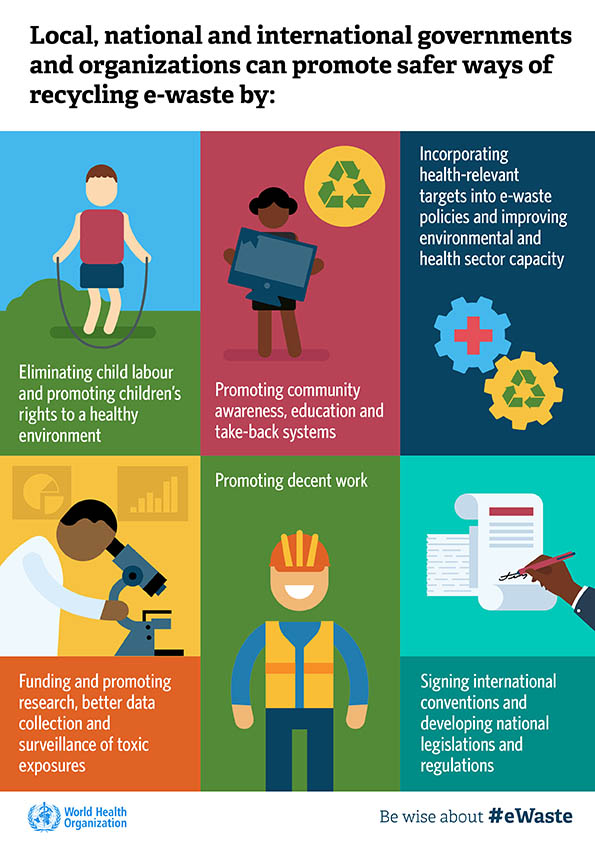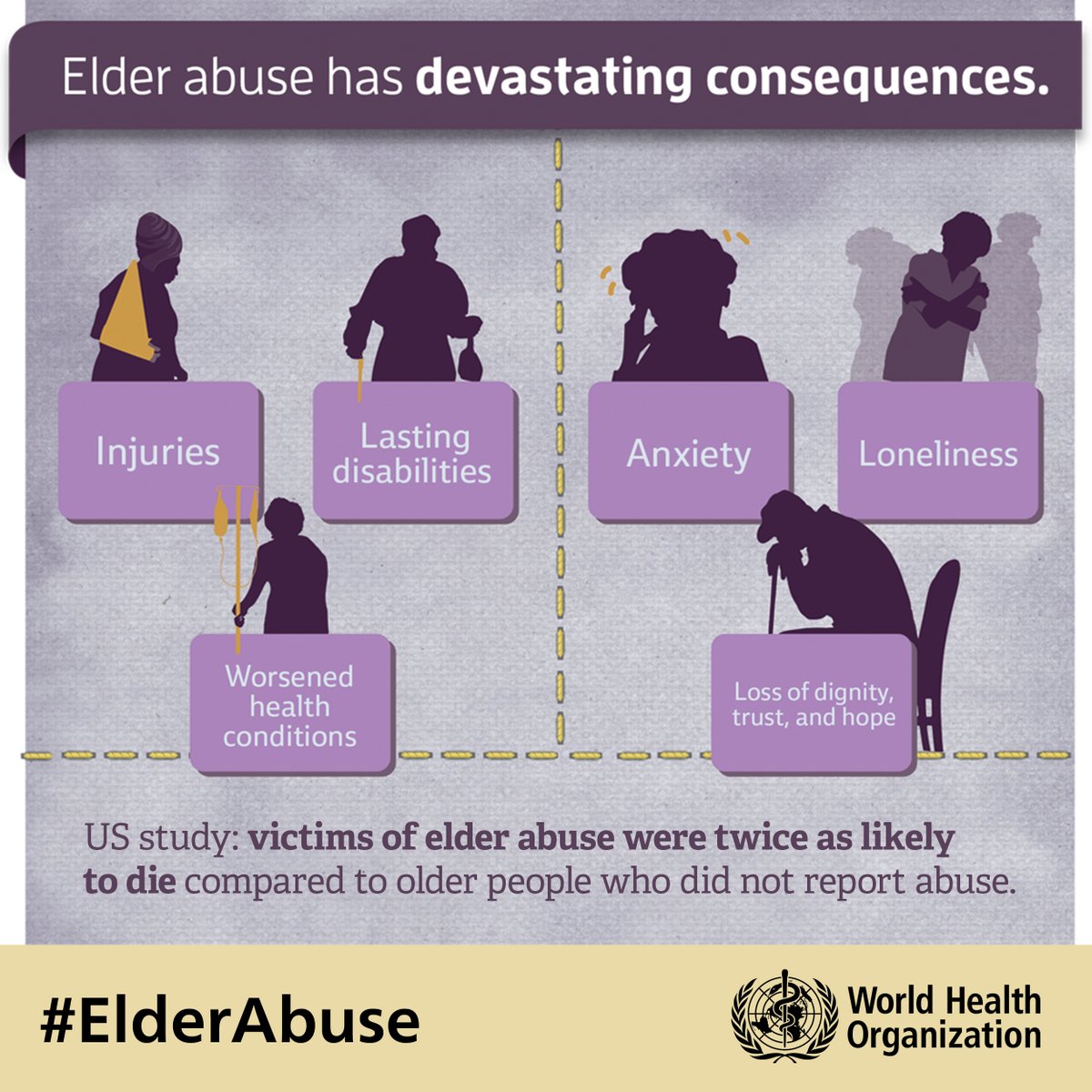
🆕 WHO report warns that the informal processing of discarded electrical or electronic devices (#eWaste) can damage the health of millions of children.
Learn more about children & digital dumpsites 👉bit.ly/2TAybnf
Learn more about children & digital dumpsites 👉bit.ly/2TAybnf

Common #eWaste items include unwanted or discarded:
🖨️ printers
🎧 headphones
📱 smartphones
🖥️ computers
📷 digital cameras
etc.
They usually contain toxic substances and must be recycled appropriately. 👉bit.ly/2TAybnf
🖨️ printers
🎧 headphones
📱 smartphones
🖥️ computers
📷 digital cameras
etc.
They usually contain toxic substances and must be recycled appropriately. 👉bit.ly/2TAybnf

In 2019, the world produced 53.6 million tonnes of #eWaste. But only 17% of those reached formal management or recycling systems.
Informal e-waste can pollute & contaminate:
❗️ air
❗️ soil & dust
❗️ water
❗️ ground water
More info 👉bit.ly/2TAybnf
Informal e-waste can pollute & contaminate:
❗️ air
❗️ soil & dust
❗️ water
❗️ ground water
More info 👉bit.ly/2TAybnf

Children are exposed to #eWaste toxicants through
1⃣ skin exposure
2⃣ inhalation
3⃣ ingestion
4⃣ transplacental exposure
Action is urgently needed to protect the health & abilities of our future generation. Here's how 👉bit.ly/3xtVfmF
1⃣ skin exposure
2⃣ inhalation
3⃣ ingestion
4⃣ transplacental exposure
Action is urgently needed to protect the health & abilities of our future generation. Here's how 👉bit.ly/3xtVfmF

In 2016, more than 1⃣8⃣ million children (5-17 yrs) are actively engaged in the informal industrial sector or living near #eWaste recycling centres where high levels of toxic chemicals can damage their intellectual abilities.
https://twitter.com/WHO/status/1404817120756649991
Informal #eWaste recycling may cause adverse health effects in children, including
🚨 lung function & respiratory effects
🚨 impaired neurodevelopment & behaviour
🚨 increased risk of some chronic diseases
🚨 DNA damage
& many more 👉bit.ly/3xtVfmF
🚨 lung function & respiratory effects
🚨 impaired neurodevelopment & behaviour
🚨 increased risk of some chronic diseases
🚨 DNA damage
& many more 👉bit.ly/3xtVfmF

Up to 1⃣2⃣ million women may be at risk from exposure to informal waste activities, putting them & their unborn child at risk of exposure to toxicants.
For expectant mothers 🤰, potential adverse health effects include negative birth outcomes. 👉bit.ly/2TE1khp #eWaste
For expectant mothers 🤰, potential adverse health effects include negative birth outcomes. 👉bit.ly/2TE1khp #eWaste

Be wise about #eWaste and follow the 3Rs to protect the health of our future generation from the growing threat of e-waste:
♻️ REDUCE
♻️ REUSE
♻️ REPAIR
There is more you can do, find out how 👉bit.ly/2TAybnf
♻️ REDUCE
♻️ REUSE
♻️ REPAIR
There is more you can do, find out how 👉bit.ly/2TAybnf

WHO calls for effective & binding action by exporters, importers and governments to ensure environmentally sound disposal of e-waste & protect the health & safety of workers, their families & communities.
Be wise about #eWaste 👉bit.ly/2TAybnf
Be wise about #eWaste 👉bit.ly/2TAybnf

You can dispose e-waste in different healthy ways:
♻️ Reduce, Reuse, Recycle
♻️ Put old electronics in designated bins
♻️ Replace when necessary
♻️ Organize e-waste collection days
♻️ Recycle via take-back systems
Be wise about #eWaste!

♻️ Reduce, Reuse, Recycle
♻️ Put old electronics in designated bins
♻️ Replace when necessary
♻️ Organize e-waste collection days
♻️ Recycle via take-back systems
Be wise about #eWaste!
https://twitter.com/WHO/status/1405080524234932225

• • •
Missing some Tweet in this thread? You can try to
force a refresh











